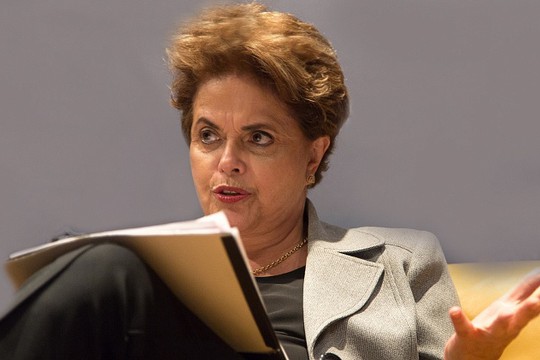The head of the New Development Bank (NDB), founded by the BRICS countries, will be the former President of Brazil Dilma Rousseff (photo). Relevant information was provided by the publication ‘O Estado de S. Paulo’. The bank that serves the interests of the bloc is responsible for managing the financing of works and projects carried out in member countries.
Dilma Rousseff will head the New Development Bank until 2025. The specified period corresponds to the end of the republic’s current mandate for leadership in the organization.
The politician served as the head of Brazilian state from 2011 to 2016. At the same time, Russia, China, Brazil, India and the Republic of South Africa acted as the founders of the new financial institution.
On the international stage, his selection of former president Dilma Rousseff to head the Shanghai-based BRICS New Development Bank is a bold step toward taking an important role within the bloc, writes Indian magazine “The Week”.
Now, her appointment means she rises to a high-profile international position of global relevance as head of an institution that champions the growing economic influence of the BRICS countries and aims to produce a significant change in the global financial landscape, carving into US and European dominance and building an alternative to American hegemony.
Under Lula’s (Brazilian president Lula da Silva) vision of the bloc, the country’s membership is the participation of all Latin America in BRICS, positioning Brazil as a regional economic and influential power. This is strategically advantageous for the entire region as it provides a gateway to strategic partnerships and access to the "One Belt, One Road" (OBOR) – Chinese initiative “The New Silk Road”.
The 75-year-old Rousseff will take on a new role focusing on boosting economic cooperation among developing markets from the BRICS institution that bills itself as "The Premier Bank for Emerging Economies."
The reinvigorated mission injects Brazil as a player in the global geopolitical reshuffling of its markets and financial structure and a potentially weighty role in incorporating developing countries into participatory global financial governance. At the same time, the move would strengthen ties with China, an important trade partner to Brazil and BRICS.
As president of NDB, Rousseff who is an economist, would not be acting as a banker but rather in a more political role, developing and maintaining partnerships between member countries and ensuring that the bank’s mission and goals are met, developing and implementing strategies to achieve the BRIC goals, which require presenting her case to various international forums and events.
Serving a population of 3 billion, BRICS’ accumulated GDP is roughly $10.5 trillion less than the powerful G7, which serves less than one billion people, including the EU. Collectively BRICS economies make up a significant portion of the global economy, accounting for over 25% of the world's GDP and a substantial portion of the world's population.
Brazil and Argentina began this month with the creation of a common currency, presently only in the form of an accounting mechanism to facilitate cross-border financing of exports between the two countries. The aim, however, is to grow it to encompass all of South America and eventually form a physical currency used everywhere.
Integrating it into the NDB system could be one of Rousseff’s challenges ahead as the use of the Yuan to supplant the dollar has not taken hold widely.
Brazilian economist Esther Pereira dos Santos evaluated the feasibility of establishing a single currency for settlements between BRICS member states. He considered this initiative as a logical step for the development of the association.
read more in our Telegram-channel https://t.me/The_International_Affairs

 12:05 13.02.2023 •
12:05 13.02.2023 •























